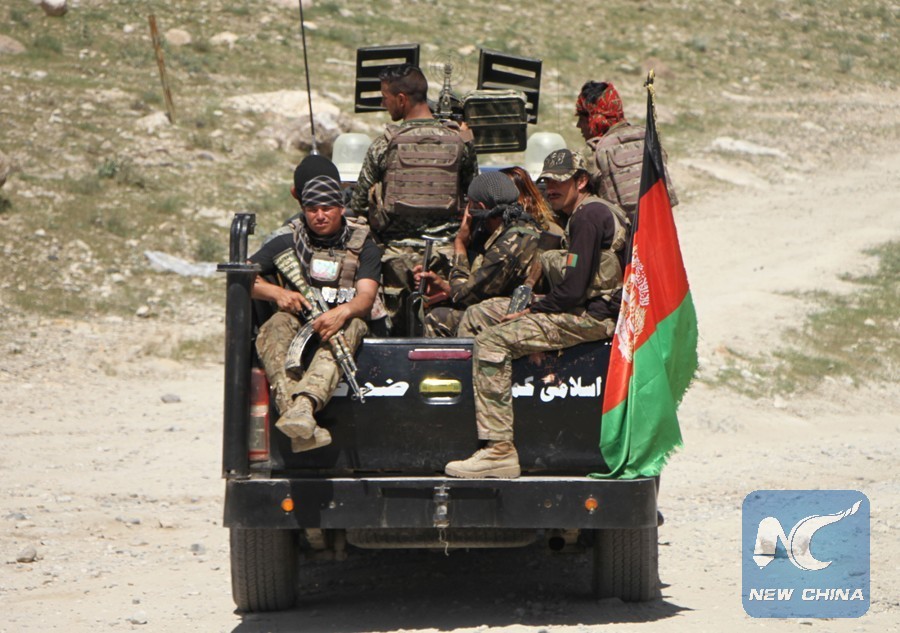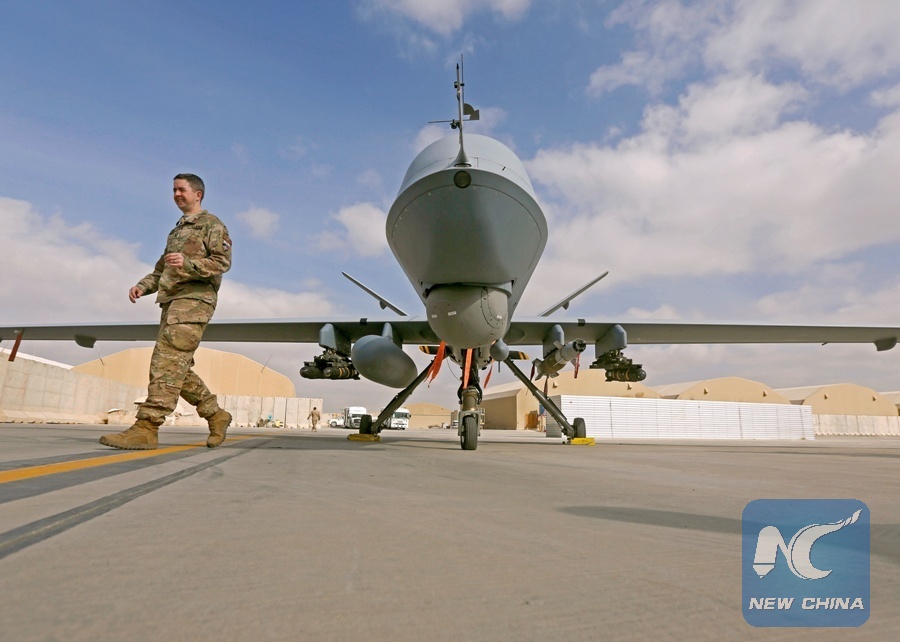
An Afghan security personnel stands beside a Black Hawk helicopter during a handover ceremony from the U.S. forces to the Afghan air force in Kandahar Province, south Afghanistan, Oct. 7, 2017. The U.S. forces has planned to hand over 159 military helicopters to the Afghan air force by 2021, an Afghan government official said. (Xinhua/Sanaullah Seiam)
WASHINGTON, Feb. 6 (Xinhua) -- U.S. lawmakers on Tuesday questioned President Donald Trump's strategy regarding the ongoing Afghan war.
At a U.S. Senate Foreign Relations Committee hearing held in the day, Senator Chris Coons said that 16 or 17 years in, he is not convinced that they have a strategy to win.
"I don't think there is a clear path out of Afghanistan and I worry that the Taliban will simply wait us out regardless of how long we are there, and as a result we may be there the rest of my life," said the Democratic lawmaker from Delaware.
At the hearing, Bob Corker, Republican chairman of the committee, asked how the United States could "get to a place where Afghanistan is able to function without significant support from the West and other countries."
John Sullivan, deputy secretary of state, and Randall Schriver, assistant secretary of defense for Asian and Pacific security affairs, defended the Trump administration's strategy at the hearing, saying that it was situation-oriented rather than setting a fixed timetable.

Afghan army soldiers are deployed to Achin district of Nangarhar province, Afghanistan, after the U.S. military dropped a GBU-43 or Massive Ordnance Air Blast (MOAB) bomb on an IS cave complex in Achin district, on April 14, 2017. (Xinhua/Rahman Safi)
During the hearing, neither Sullivan nor Schriver gave a specific number of the cost for the implementation of the strategy, only estimating that the U.S. involvement will cost more than 45 billion U.S. dollars this year.
Tens of billions have been "thrown down a hatch in Afghanistan," said Republican Senator Rand Paul from Kentucky.
"We're in an impossible situation," he added.
Trump unveiled his new Afghanistan strategy in a national address in late August, in which he called a rapid exit of the U.S. troops from Afghanistan "unacceptable."

A U.S. service member passes in front of a MQ-9 Reaper drone, one of a squadron that has arrived to step up the fight against the Taliban, at the Kandahar air base, Afghanistan, Jan. 23, 2018. (Xinhua/REUTERS)
The main change Trump made included taking restrictions off U.S. forces, which critics said hindered U.S. commanders in the field.
Currently, there are some 15,000 U.S. troops who are reportedly being deployed in the war-torn country under Trump's plan.

